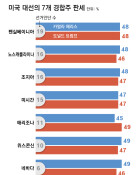[Opinion] Too-Golden Parachutes
In Japan, large corporations` practice of giving well-paying jobs to retired high ranking government officials is referred to as Amakudari (天下り), which literally means, "descent from heaven." Recently, government employees at the Japanese Defense Facilities Administration Agency have come under fire as they assigned public construction projects to preferred companies that often practice Amakudari. These companies provided an annual salary of 130 million won to retired officials and were given a seven billion won building project in return. Incumbent public servants even evaluated on score sheets how these firms are practicing Amakudari.
Recognizing the seriousness of the problem, the Japanese government is set to implement a comprehensive plan to stop such a revolving door beginning next year. Under the plan, a non-profit public service corporation involving civic experts will monitor and cut collusive links between public employees and corporations. Would it work? It is not clear whether the plan would get rid of the long-standing practice in a society where connections and nepotism with government agency workers are valued. Furthermore, in the name of stopping the revolving door, government agencies had incompetent officials, who failed to be promoted, keep their jobs, which was a windfall for the workers.
If there is an Amakudari competition, South Korea would be no less than a top dog. During this Roh Moo-hyun administration, more retired officials (282) were hired by firms last year alone. Among them, 134 are unsuccessful candidates in general elections, politicians from Cheong Wa Dae and the ruling party, and special aides to Roh before he took office. Saying sorry seems to be too hard for the president. In April 2003, he lifted up his voice and said that he would do most desirable personnel management and take responsibility for its consequences. In June 2004, Jeong Chan-yong, the then chief aide on personal affairs at the presidential office proudly said that the sitting participatory government put an end to the revolving door.
Corporate posts going to retiring public servants are purposeful: to use connections of, to return favors to, or to give consolation to the retirees. The ruling party`s dismal defeat in the May 31 local elections caused so many people to be "consoled." If Cheong Wa Dae and the ruling party reel themselves from the shock, they might produce many revolving doors. The government made into law that heads of government agencies must be professional management experts. However, even with the legislation in place, there may have already been too many revolving doors.
Hong Kwon-hee, Editorial Writer, konihong@donga.com







